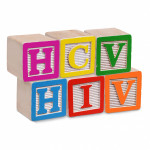People with hepatitis C virus (HCV) can receive direct-acting antiviral (DAA) treatment through a pharmacist-delivered system and achieve good cure rates. However, the likelihood of a cure was lower among people who missed any doses of the regimen, according to a recent study.
Publishing their findings in Open Forum Infectious Diseases, Michelle T. Martin, PharmD, of the department of pharmacy practices at the University of Illinois at Chicago College of Pharmacy, and colleagues enrolled 1,253 people with HCV in a study of pharmacist-delivered DAA treatment. Pharmacists oversaw the participants’ care with help from interdisciplinary teams.
The participants were enrolled between January 2014 and March 2018. The investigators gathered data about the study members’ demographics, other health conditions, hep C treatment and DAA treatment outcomes.
The average age of the participants was 57.4 years old, and the average body mass index (BMI) was 28.7 (25 or above is overweight; 30 or above is obese). A total of 63.9% were male and 53.7% were Black. Cirrhosis (liver scarring) had been diagnosed in 40.3% of participants. A total of 88.4% of the participants had genotype 1 of HCV and 81.6% had not been treated for the virus previously. A third had mental illness, 24.2% had diabetes and 18% had HIV coinfection.
More than half (60.4%) received Harvoni (sofosbuvir/ledipasvir) with or without ribavirin, and 83.8% were treated for 12 weeks. Ninety-five study members were lost to follow-up, and 24 stopped taking their treatment before the end of the regimen.
Among those who completed treatment, 95.1% (1,079 of 1,134) achieved a sustained virologic response 12 weeks after completing therapy (SVR12, considered a cure). Among all participants, including those lost to follow-up and those who discontinued treatment, 86.1% (1,079 of 1,253) were cured. Those who missed any doses of their treatment had a cure rate of 74.9%, while 90% of those who fully adhered to their regimen were cured.
“HCV treatment by clinical pharmacists in an open medical system resulted in high SVR rates comparable to real-world studies with specialists and nonspecialists,” the study authors concluded. “[The] findings demonstrate the success of a clinical pharmacist-delivered method for HCV treatment expansion and elimination strategy.”
To read the study abstract, click here.







Comments
Comments